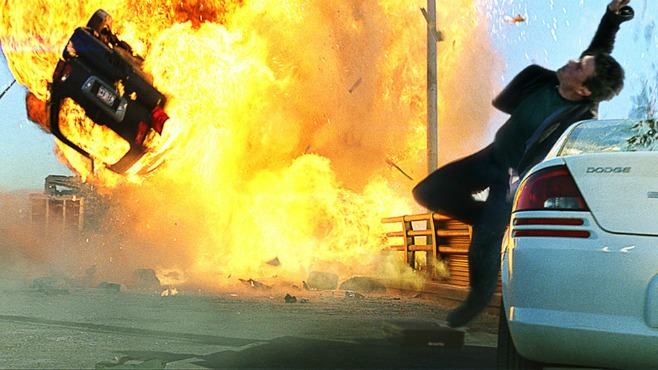
SPOILERS: About that “Star Wars” thing
 Now that “Star Wars: The Force Awakens,” has been out for a while, it seems like a good time to start talking about it. If you haven’t seen it yet, what are you waiting for? If you have seen it or don’t fear spoilers, then feel free to read on…
Now that “Star Wars: The Force Awakens,” has been out for a while, it seems like a good time to start talking about it. If you haven’t seen it yet, what are you waiting for? If you have seen it or don’t fear spoilers, then feel free to read on…
**************SPOILERS********************
If you’re still here, congratulations!
The writers of the new “Star Wars” weren’t kidding that “The Force Awakens,” as it truly feels like a new dawn for the franchise. The prequels left an empty feeling each time, especially as that iconic closing credits theme blared at the end of Episode III as the series shambled to a finish. Many “Star Wars” fans probably thought it would be the end of the once vaunted, now belabored series, and most people probably didn’t want to see any more of it anyway.
But the new movie leaves moviegoers with that same bubbly, hungry-for-more, adventurous spirit the first two movies in the original trilogy left for those who had discovered their new love in life. Especially with the disappointment of the prequels still in the rearview mirror, “Star Wars” fans deserve to be giddy, and movie fans in general should find an entertaining and memorable experience that isn’t as rare as it used to be, but still a nice find when one happens upon it.
Some credit has to be given to director JJ Abrams for bringing “Star Wars” back in a big way, but the best move Disney and Co. made is probably in bringing back original trilogy writer Lawrence Kasdan, whose pen has been sorely missed since 1983. The result is a great mix of new and old, which is basically what the movie is all about.
It’s wonderful to see older actors Harrison Ford, Carrie Fisher and Mark Hamill return for another adventure, but even better is getting to witness newcomers Daisy Ridley, John Boyega, Oscar Isaac, Adam Driver, and others carry “Star Wars” into this new era alongside them. Ford’s Han Solo and Fisher’s Princess General Leia get to have some new adventures while new heroes Rey, Finn, and Poe get to begin their own as villain Kylo Ren takes over where Darth Vader left off trying to control the galaxy.
Abrams’ greatest strength has always been his ability to develop characters, and that’s where the new movie shines the most. He doesn’t exactly reinvent the “Star Wars” wheel here. Actually, it would be more accurate to say, he took it in the garage and gave it a few tweaks. It’s not as if the galaxy had never seen anything like Rey, for instance, but she’s different enough from her predecessors that there are a lot of exciting possibilities for the direction the character could be taking.
Obviously, she evokes both Anakin and Luke Skywalker in her mastery of the Force, as well as her knack for tinkering with mechanical things. But Rey is taking the mastery thing a step further than those Jedi from long ago. Though Luke is responsible for bringing that whole Jedi thing back in style (hooded robes were in in the ’70s), and Anakin could harness the Force enough to win pod races in his blond, bowl-cut youth, Rey has learned to use that mysteriously floaty source of power all on her own, without instruction from anyone. But whereas Anakin had to study under Master Obi-Wan before he started throwing Mace Windu out a window, and Luke needed the same Master Obi-Wan to tell him the Force was in him, just like it was in his father before he could start swinging his lightsaber around, Rey has seemingly picked it up on her own. Thus, the question is raised: Could she possibly be the strongest Force-user the universe has ever seen?
But then, it’s not totally clear whether she is the lead protagonist in this new story, or could it be former stormtrooper Finn? As far as anyone knows, he’s the first to free himself of the white helmet and create his own path for his life. According to Finn, he was taken from his family when he was young and forced to fight for the First Order. His immediate tendency is not toward heroism, but rather his concern is to be free. Boyega shows off his excellent comedic chops, as”I-Am-With-the-Resistance” Finn provides much of the comedy in the film, as he tries to impress the much more game Rey, despite his own reluctance to be involved in the galactic struggle. It’s hard to blame him for wanting to flee his former masters, but his interest in Rey keeps him involved in the fight.
It’s fun to see Rey and Finn get equal treatment as the center of the story. The original “Star Wars” gave Luke and Han comparable treatment, and there was Leia too, but the subsequent movies focused mainly on Luke and Vader, and the rest of the characters became merely players in the big war. It’s hard to say whether the story is centered more on Rey or Finn at this point, and considering the fact that they share significant screen time and development, it’s easy to be enthusiastic about both characters. They’re both interesting characters, and it will be interesting to see how they develop over the next two movies.
It’s good to see Han and Chewie back, and in as fine of form as they were in nearly 40 years ago. Han’s reunion with Leia is something special and touching, especially for longtime “Star Wars” fans. It’s fun to see Han finding new ways to get into and struggle to get out of trouble, and that Leia is now a general. Though neither is really the focus anymore, the two get more character development in the little bit of time they get to spend together than they did in the original trilogy, and the couple is more truly romantic than they’ve ever been.
The great thing about having Abrams aboard is that, as with “Star Trek,” he’s very efficient at developing characters, especially in a world someone else created. He’s good at taking stereotypical characters and subverting them, as he did in “Super 8.” Both of those skills came in handy here. The characters of “Star Wars” have never had the complexity they have now, after spending a mere two hours with them. “Star Wars” is at its best when it’s about its characters, so that can only be a good thing.
And since a new villain has to be developed since Vader is gone, he’s going to need work.
Abrams and company must have surmised that it would be difficult to create a new villain that’s something more than just a wannabe Darth Vader, they decided to make Kylo Ren literally a wannabe Darth Vader. It works very well, considering the characters and events of the original “Star Wars” trilogy are myths and legends to the young new characters. Kylo Ren struggles with being evil enough. Whereas Vader coldly dispatched his inept underlings with a terrifying calm, Ren is prone to violent outbursts in a desperate attempt to demonstrate his power and control. It’s been a while since there’s been a villain who is unlikeable because he’s so impotent and uncool, and that’s a good trend. Whereas Vader has become such a beloved character because he was a badass and sympathetic because of his desire for a relationship with his son, Ren should be reviled for being so insecure and unlikable. He even wears a helmet, not because he needs it like Grandpa Vader did, but because he thinks it will make him more like Vader. It’s not because he’s a poorly developed character. On the contrary, Driver makes Ren’s motivations and emotions pretty plainly obvious. It isn’t that he’s just so evil and cold and disturbing. He’s weak, but he wants to be strong. He has existential struggles about giving into the light side. He’s afraid he won’t be to the First Order what Vader was to the Empire. That makes him more prone to doing things that are stupid, selfish, and dangerous to those around him. He’s less rational and more emotional. That leaves many interesting possibilities for the character in the future.
The First Order, being assumedly among the last remnants of the dying Empire, is not well-defined, though neither was the Empire on the other hand. Nor is the Resistance, which apparently has evolved from the Rebel Alliance. There are still two warring sides, and the story is mostly about those fighting the war on the frontlines rather than the ideology of the struggle. It might have been interesting to explore the galactic war more thoroughly, but then again, Lucas tried that with the prequels and they didn’t turn out so well. “Empire Strikes Back” hinted at the possibility that the Jedi weren’t the ultimate force of good in the universe but never really explored it further. Ambiguous morality isn’t really what “Star Wars” is about, and though that could make for interesting stories, the franchise isn’t there yet, and maybe it never will be.
It has to be said that it’s awesome to see a woman and a black man leading one of Hollywood’s most famous properties, and that they have a Latino pal. There haven’t been many of either at the head of any major blockbusters, and it’s good to see diversity. It was funny if not terrifying to see the Twitter campaign from racists to boycott “Star Wars” for its “anti-white” agenda because Boyega would be appearing in the film. It’s not as if there is anything in the universe that can slow, let alone halt the Disney marketing machine, and the resistance ended up being a marketing win, as Disney could tout its supposed progressiveness as a marketing ploy rather than a hinderance, which Abrams and company did do. But it’s a sign of progress, even if a small one, when those sorts of people get that angry about something.
And the cool thing is that these actors are so young and just starting their careers. Isaac has been getting more parts and is killing it constantly, and Driver has been around a while himself. But Boyega’s only other film of note is “Attack the Block,” and aside from a handful of appearances on British TV shows, Ridley hasn’t done anything else. It will be fun to watch these actors grow up through “Star Wars” and whatever other work they find to do. Luckily for them, it seems they’ll have better material to work with than the actors in the prequels because bad films with this much visibility can make or break careers. Natalie Portman was a promising young actor who was able to overcome her part in the prequels and have a very good career. It didn’t go as well for Hayden Christensen, whose career hasn’t recovered, which is a shame because it might not have been his fault. And then there’s Jake Lloyd, whose life was completely ruined because he had the misfortune to be young Anakin. But hopefully things will be better for the new crop of Future Stars.
Maybe next time, there can be an Asian character, who gets more than a couple lines. Maybe not everyone can get true representation in a single feature film, but Hollywood needs more Asian stars. The Rock counts, but that’s about all there is. Yeah, several Asian countries have their own movie industries, but never anything with the kind of budget Hollywood blockbusters, and especially “Star Wars” have. Asian “Star Wars,” get crackin’ on it, Disney!
One of the most interesting aspects of the new film, which is also one of its biggest flaws, is that it raises a lot of interesting questions for the future. Besides the obvious question of the cliffhanger the movie left audiences with of “what’s up with Rey and Luke?”, the movie hints that Rey has the same anger inside of her as Vader did, and there’s the possibility that she could be the next dark lord of the galaxy, easily stepping over Kylo Ren. There’s the question of what Rey’s and Finn’s relationship will be going forward. Is Han Solo really dead, because Ford is by all reports signed on for the next movie? What the hell is a Snoke?
Speaking of flaws, what the hell was that? Snoke is definitely the weakest part of the movie. Hopefully, it was supposed to be akin to “The Wizard of Oz,” where there is a real man behind the curtain. It’s OK if he’s not human, but it would be silly if it turns out he’s an actual giant. The CGI for him looked dreadful, so here’s hoping all of his scenes were meant to be some kind of red herring, because all of that needs to go away.
But it is a problem in a way that this film is relying so heavily on the next one for context. It is an excellent film as it is, but if Episode VIII is a bad one, it could completely undo all of the good this movie did. The main players had complete arcs for the most part, but it was obviously also setting up for the next movie because anyone can Google Disney’s “Star Wars” release schedule. After Episode VIII comes out and if it sucks, then people could still enjoy VII, but it will lose some of its luster and be yet another reminder of how much potential the series holds but rarely lives up to it.
Thankfully, the promising Rian Johnson is at the helm, and if he can produce something along the lines of “Looper,” then it could be pretty spectacular. And it will be good to see him take over for Abrams, as Abrams is at his best when he’s working with material others have created a la his “Star Trek” movies as opposed to “Super 8,” which started with some promise and completely fell apart at the end. Then again, if it’s anything like Disney’s Marvel movies, the director doesn’t seem to have enough creative control to have much influence on the direction the stories take, so it might not make any real difference.
Of course, it’s a legitimate criticism that the film is very similar to the original “Star Wars,” and in many ways it is a more modern, refined, and improved version of that movie. But if you look at the series as a chronicle of the world that it created, that could also be seen as a commentary on the cyclical nature of history, which would be a realistic view of the world and humanity. It could also be seen as lazy and pandering to the fan base. It’s pretty much a matter of your point of view. Again, the film is relying heavily on the next one, which means there’s no way to judge this now. If the next movie fails to make significant changes, then the entire venture might feel like a waste of time. On the other hand, if the next movie turns out to be a work of off-the-charts brilliance, then VII will be seen as a much-needed righting of the ship (which is an analogy that doesn’t work in space because there’s no gravity).
But for a franchise to have had as many installments as it has had is a sign of its staying power, especially having survived after the prequels. Think about it, nine movies, (ten if you count “The Clone Wars” though that was really just a lead in for the TV series) by the time it’s finished (or 12 if you count the spinoffs). No other franchise has lasted that long, at that level of quality, even if the prequels are merely mediocre. “Rocky” has seven now, but only the first few are respectable.”Die Hard” is up to 5, but again, only the first couple are really worth watching. “Aliens” will be close in quantity, but there’s no quality after the second movie. Same thing for “The Terminator.” There are a lot of long-lasting horror franchises, but later installments belong at the bottom of the rack at rental stores (and no one goes to rental stores anymore!). So “Star Wars” mostly having a relatively high level of quality though its run is a real achievement.
“The Force Awakens” was a very good movie. It’s the most fun you’ll have at the theatre all year, which you don’t have to feel guilty about because it also has some well-developed and complex characters to sink your movie fangs into. It’s the revival of a franchise that could have stayed dead as far as almost everyone was concerned, but it also sets up for what could be a great future. It has plenty of wit and charm to spare, that recalls the fondest memories of the original films and washes the taste of Jar Jar off the palate completely. It’s probably not going to win any converts, and “Mad Max: Fury Road” is still most likely the best movie of the year. But moviegoers in general who don’t feel forced to see the movie should find an enjoyable action-adventure film that is among the all-time greats.
The Force truly is strong with this one.
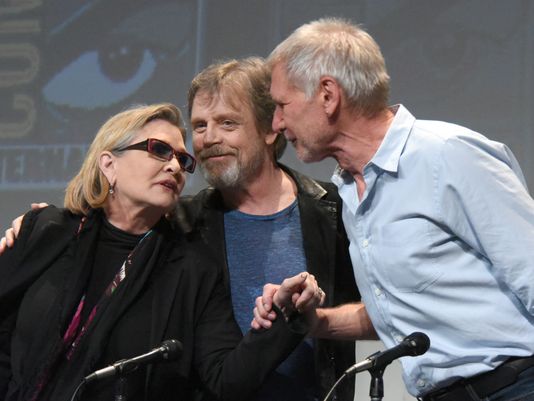


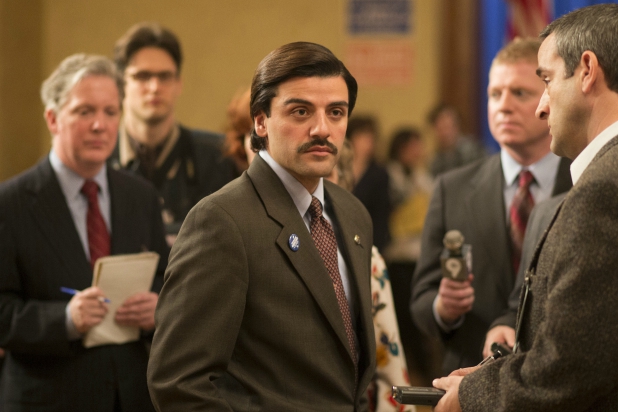
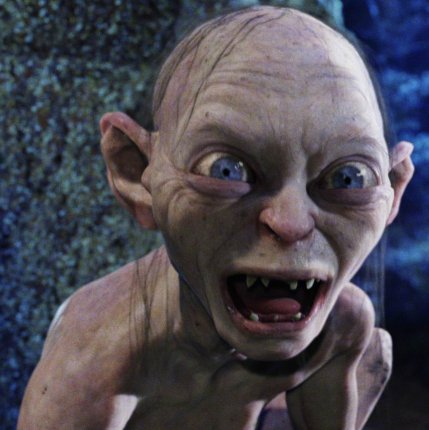
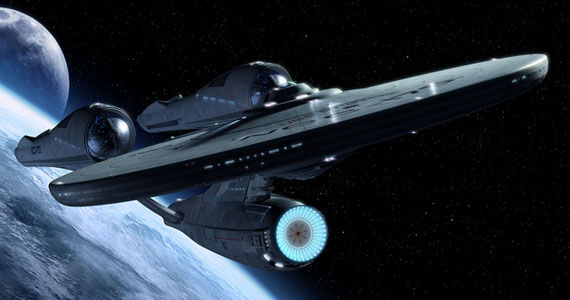

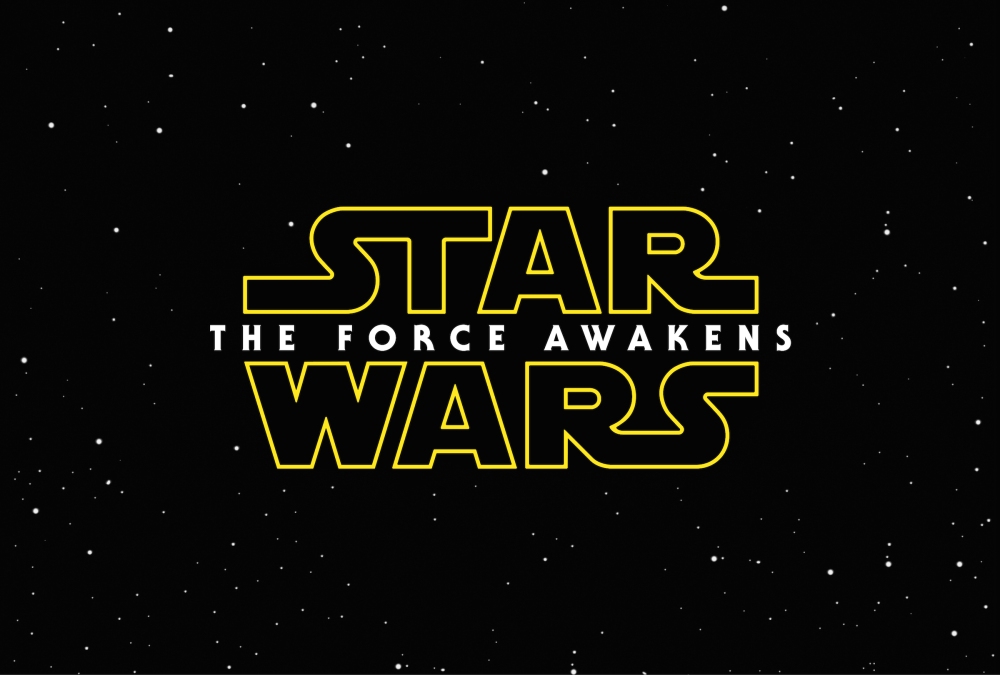 I will be seeing “The Force Awakens” on Saturday, so I’ll be one of the last people I know who’s going to make it to the theater for the film. I’ve pretty much run out of time on my JJ Abrams thing, because I’m terrible at sticking to my own script. But before I see the movie, there are some things that need to be said about the franchise and about its future.
I will be seeing “The Force Awakens” on Saturday, so I’ll be one of the last people I know who’s going to make it to the theater for the film. I’ve pretty much run out of time on my JJ Abrams thing, because I’m terrible at sticking to my own script. But before I see the movie, there are some things that need to be said about the franchise and about its future.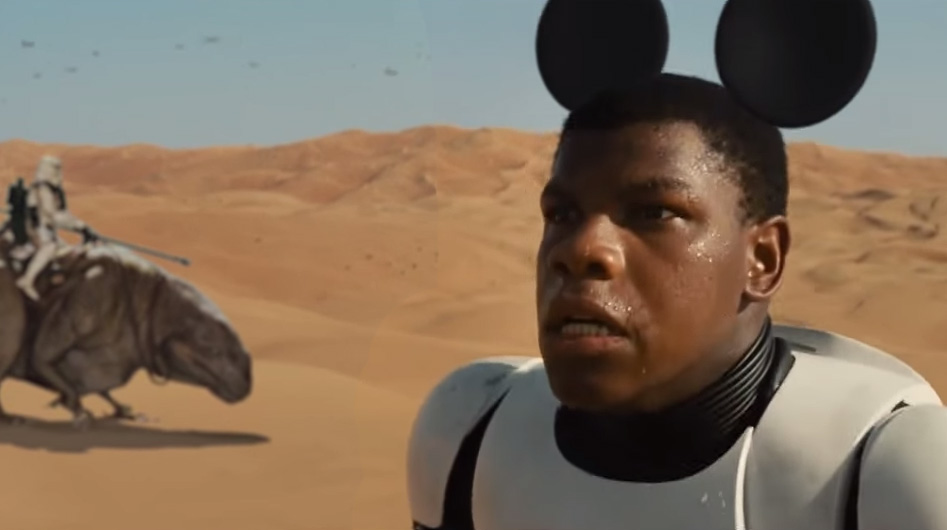

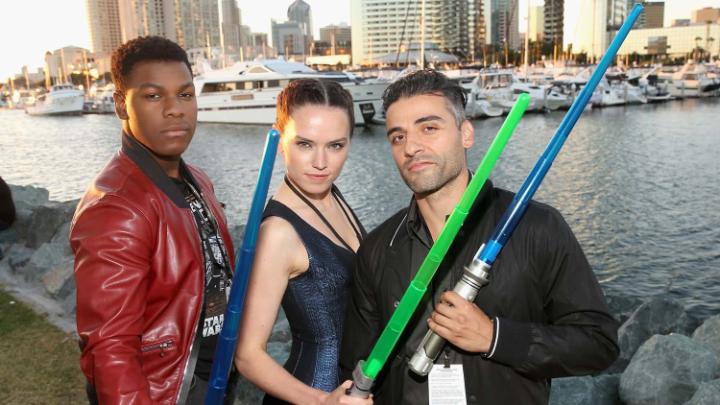
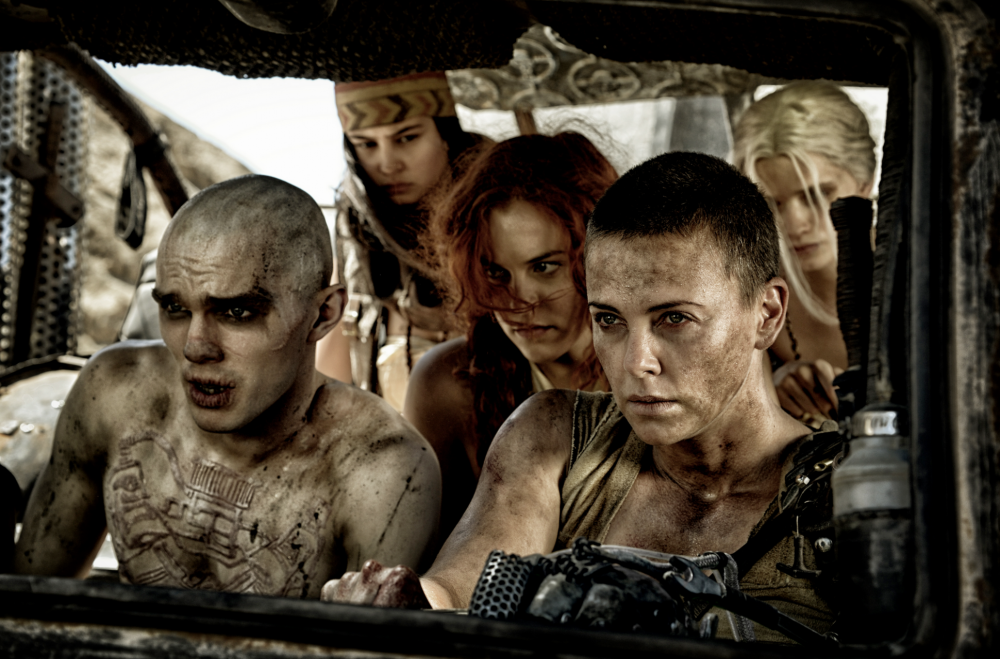

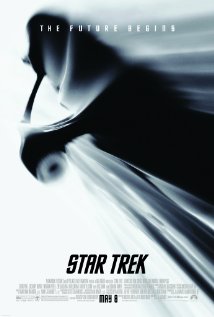 The next franchise on the slate for J.J. Abrams to revive was one with a long and varied history on TV, which had finally hit a dry patch after more than 40 years of being on the air. The most recent installments in the series, “Star Trek: Voyager” and “Star Trek: Enterprise” didn’t have quite the followings of the original series “Star Trek” or “The Next Generation.” Once “Enterprise” went off the air in 2005, it was the first time in 17 years that there was no current “Star Trek” series on TV at all, which was quite a disruptive change for fans, considering for half of the ’90s, there were two series running concurrently. But entertainment fans in general didn’t feel like they were missing anything with the drop in quality of the shows. So, a break was probably a good thing.
The next franchise on the slate for J.J. Abrams to revive was one with a long and varied history on TV, which had finally hit a dry patch after more than 40 years of being on the air. The most recent installments in the series, “Star Trek: Voyager” and “Star Trek: Enterprise” didn’t have quite the followings of the original series “Star Trek” or “The Next Generation.” Once “Enterprise” went off the air in 2005, it was the first time in 17 years that there was no current “Star Trek” series on TV at all, which was quite a disruptive change for fans, considering for half of the ’90s, there were two series running concurrently. But entertainment fans in general didn’t feel like they were missing anything with the drop in quality of the shows. So, a break was probably a good thing.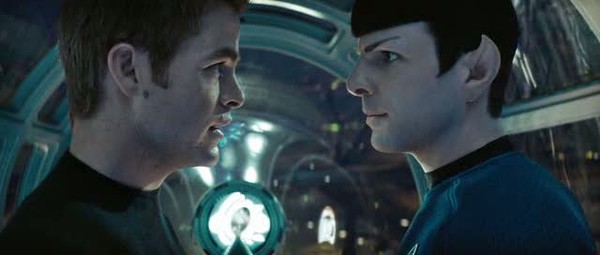

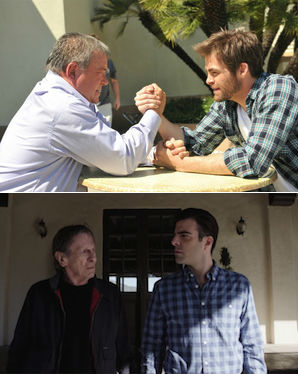

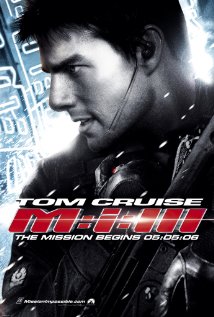 Oddly, “Mission: Impossible III” actually makes for a rather apt example of what J.J. Abrams will bring to the table for “The Force Awakens.” For being an “M:I” movie, it’s similar in many ways to George Lucas’ original “Star Wars” trilogy, as well as his own “Star Trek” films, which many have seen as a warm-up for the new “Star Wars.”
Oddly, “Mission: Impossible III” actually makes for a rather apt example of what J.J. Abrams will bring to the table for “The Force Awakens.” For being an “M:I” movie, it’s similar in many ways to George Lucas’ original “Star Wars” trilogy, as well as his own “Star Trek” films, which many have seen as a warm-up for the new “Star Wars.”
